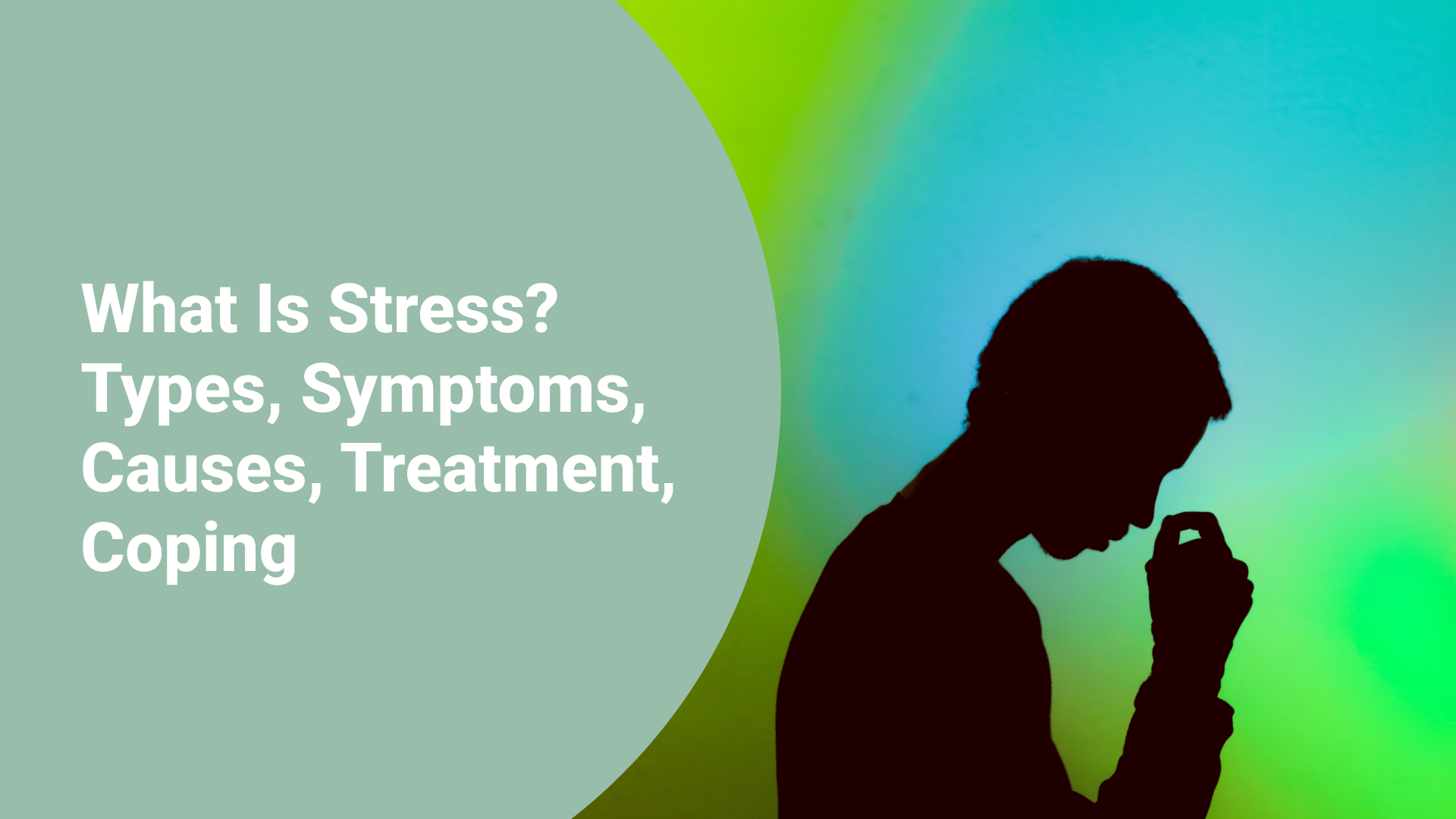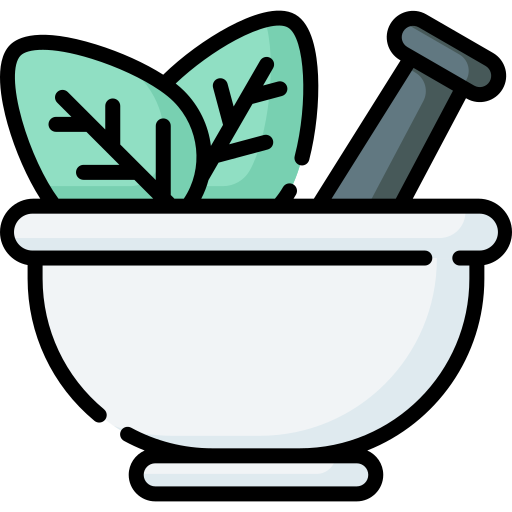What Is Stress? Types, Symptoms, Causes, Treatment, Coping

Ashwagandha Expert is a project that offers the most accurate information in an accessible, understandable and applicable way so that readers can make the best...Read more
✅ Evidence-Based
⚙️ Methodology
From the author:
What is stress?
Stress is the body and mind’s natural response to changes or threats, manifesting through physical, emotional, and cognitive reactions.
Our bodies naturally react to different situations with stress, which is pretty common for everyone. When faced with a challenging situation, hormones such as adrenaline and cortisol are released, gearing the individual for a “fight or flight” response by increasing heart rate, blood pressure, and alertness.
Stress is like a built-in defense system – it helps us adapt to new things and respond to danger by fighting or fleeing. So, stress can be a good thing.
But here’s the flip side: too much stress, especially the ongoing kind, can lead to health issues. It causes inflammation, which is the starting point for many diseases. Chronic stress messes with our thinking, hurts our health, and messes with our whole life.
In a nutshell, stress is like a superhero that can turn into a villain if it hangs around too much. It’s great for quick reactions, but too much of it is a real health bummer.
Effective stress management training can help individuals cope with changes more healthily, fostering resilience and a regained sense of control.
Eustress vs. distress
Stress can be useful when it helps you tackle challenges or make decisions. Handling stress well can actually benefit you. This positive stress, known as eustress, pushes you beyond your usual limits and helps you grow. In both work and academic life, important choices are often made when dealing with this positive stress.
On the flip side, there’s negative stress that overwhelms you, leading to feelings of sadness and hormonal imbalances. This kind of stress is harmful, causing inflammation, sleep disturbances, and depression. Negative stress doesn’t bring anything good; it just brings problems into your life.
Types of Stress
There are three types of stress, including acute stress, episodic acute stress, and chronic stress.
Acute stress is the most common type of stress, and it is usually short-term. It is a response to a specific event, such as a job interview, an exam, or an accident.
Episodic acute stress occurs when an individual experiences acute stress frequently. It is common among people who have a lot of responsibilities and are always under pressure.
Chronic stress is the most severe type of stress, and it occurs when an individual experiences stress for an extended period. It can result from long-term financial problems, relationship issues, or health concerns.
There is no single form of stress
Stress affects everyone, but how we see stress is different for each person. What feels stressful to one might not bother another. Plus, how we react to stress can change depending on where and when it happens.
Our response to stress involves both emotions and thoughts. Emotionally, we might feel shocked, scared, anxious, angry, or irritated. Some folks could even feel a bit down. On the thinking side, stress can make us confused, forgetful, and make decisions harder. It might also bring on nightmares and flashbacks. But remember, not everyone reacts the same way to stress. Some people handle tough situations without feeling these things.
What happens to the body during stress?
When stress hits, our body jumps into action with the fight or flight response, affecting our mood, immune system, digestion, and heart health.
In stressful moments, the brain’s hypothalamus releases adrenaline and cortisol, making our heart race until the stress eases. This also speeds up our breathing, shifting blood to the heart.
Stress also unleashes glucose, a quick energy boost. Yet, if stress becomes chronic, it may set the stage for type 2 diabetes.
These stress hormones can throw a wrench into digestion, leading to discomfort like heartburn. While stress itself doesn’t directly cause ulcers, it heightens the risk and triggers existing ulcers.
Muscles tense up during stress, often resulting in headaches and body pain.
Initially, stress revs up our immune system, signaling a defensive stance. However, chronic stress weakens it, leaving us more vulnerable to infections.
In summary, during times of stress our body reacts as follows:
- Heart beats faster, blood pressure goes up.
- Sugar in the blood rises.
- Feel more energized, more aware, and concentrate better.
- Breathe faster.
- Start sweating.
- Blood flows more to muscles, making movement easier.
- Metabolism speeds up, burning more fat.
When stress becomes chronic rather than instantaneous, our body wears out as it keeps the stress response constantly activated and shows the following emotional and behavioral symptoms:
- Acute or chronic pain in various parts of the body.
- Weakness, fatigue.
- Depressive mood, anxiety disorders.
- Feeling short of breath, palpitations.
- Numbness and electric sensation in hands and feet.
- Sleep problems.
- Dizziness, imbalance.
- Digestive problems such as nausea, vomiting, diarrhea or constipation.
- Impairment in sexual functions, lack of sexual reluctance.
- Decreased concentration, decreased work-school performance.
- Blood pressure begins to rise due to long-term secretion of stress hormones.
- Damage to the cardiovascular vessels may occur and the risk of cardiovascular disease increases.
- Blood sugar level remains high.
- The risk of blockage or bleeding in the brain vessels increases.
- Sleep problems may develop.
- Weight gain may occur with high blood sugar for a long time.
Signs and symptoms of chronic stress
People react differently to stress. When you’re stressed, your body makes hormones that lead to various physical and emotional symptoms. These symptoms can be different for everyone.
Some people handle stress without obvious signs, while others might face serious health issues even with a little stress.
The most common symptoms of stress:
Cognitive Symptoms:
- Memory issues
- Difficulty concentrating
- Poor decision-making
- Focusing on the negative
- Anxious or racing thoughts
- Constant worrying
Emotional Symptoms:
- Depression or unhappiness
- Anxiety and agitation
- Mood swings, irritability, or anger
- Feeling overwhelmed
- Loneliness and isolation
- Other mental or emotional health problems
Physical Symptoms:
- Aches and pains
- Diarrhea or constipation
- Nausea, dizziness
- Chest pain, rapid heart rate
- Loss of sex drive
- Frequent colds or flu
Behavioral Symptoms:
- Eating more or less
- Sleeping too much or too little
- Withdrawing from others
- Procrastinating or neglecting responsibilities
- Using substances (alcohol, cigarettes, drugs) to relax
- Nervous habits (e.g., nail-biting, pacing)
Causes of stress
Stress comes from different things for different people. It’s not just from outside stuff, but also what’s happening inside you. What stresses one person might not stress another. So, when we look at stress, remember it changes from person to person and situation to situation.
External causes of stress:
- Major life changes
- Work or school problems
- Relationship difficulties
- Financial troubles
- Being too busy
- Children and family
Internal causes of stress:
- Pessimism, a negative outlook on life
- Inability to accept uncertainty
- Rigid thinking, lack of flexibility
- Negative self-talk
- Unrealistic expectations/perfectionism
- All-or-nothing attitude
Top 10 stressful life events:
According to the Holmes and Rahe Stress Scale, here are the top ten stressful events for adults that might affect their health:
- Death of a spouse
- Divorce
- Marriage separation
- Imprisonment
- Death of a close family member
- Injury or illness
- Marriage
- Job loss
- Marriage reconciliation
- Retirement
How is stress diagnosed?
Stress cannot be diagnosed with tests. Whether stress is present depends on the symptoms the person is showing. To understand whether a person is experiencing stress, health professionals try to identify the reasons that may cause these symptoms.
How can stress be avoided?
The way to prevent stress is to understand what might stress you out and avoid those situations. However, you cannot eliminate stress from your life because it is a natural reflex and helps you survive.
Your greatest weapon to prevent stress is knowledge. It’s a good idea to step away from or manage anything that might stress you out.
Some of life’s most common stressors include:
Stress at work
Work can be stressful for everyone. When work stress gets too much, it can mess with how well you do your job. If it goes on for a long time, it can mess up your relationships, home life, feelings, and especially your health. If work stress is too hard to handle, you can learn to manage it, take a break, go on vacation, get help, or talk to your coworkers. Doing these things can help you avoid the bad effects of stress.
Financial insufficiency
Dealing with financial insufficiency can be really tough. Whether you’re looking for a job or already employed and facing financial challenges, it’s natural to feel stressed. Insufficient finances can bring stress, blues, low confidence, and a sense of losing your way. To cope, spend time with friends, have a chat, or take proactive steps to address the issues causing your financial difficulties.
Grief and loss
Losing someone or something you care about makes you feel sad and stressed. It’s okay to grieve; it’s a normal and necessary part of being human. During this time, you might question your own existence and feel angry or despairing. Just know that it’s okay to mourn, and remember that life keeps moving forward.
Health concerns
Health concerns can be tough. If you’re dealing with a health issue or worried about a serious medical condition, it can really get you down. Stress levels go up, especially if you’re prone to worrying about your health too much. But there are things you can do to feel better. Reach out to a professional, find ways to take your mind off things, and spend time with friends. These simple steps can make a big difference in how you feel.
How long does stress last?
Stress fades when the issues causing it get resolved. Daily stress is usually short-lived, but it can become a prolonged challenge. To handle stress effectively, learn stress management techniques and steer clear of its impact on your body, emotions, and actions.
Improving your ability to handle stress
Dealing with stress in everyday life is something we all face. The good news is, there are simple things you can do to handle it better. Turning stress into something that helps you is possible. Even if you’re really good at managing stress, it still comes and goes. Stress is just part of the deal.
- Stay calm in tough times by thinking about one thing and staying busy.
- Talk to your friends when things get hard; it helps.
- Skip things that stress you out if you can.
- Tell yourself positive things to stay in control when stressed.
- Do simple breathing exercises to relax.
When should I get treatment for stress?
Feeling stressed is okay, but certain signs might mean it’s a good idea to talk to a doctor. If you’re using drugs or alcohol to deal with stress, hurting yourself, doing illegal stuff, or getting into bad eating habits, it’s a clear signal to see a doctor for help and treatment.
What are the treatments available for stress?
It is possible to treat stress and many different methods can be used in treatment.
Meditation and mindfulness-based stress reduction
Relaxing activities like meditation, including types like mindfulness and loving-kindness, help manage stress. Mindfulness-Based Stress Reduction (MBSR), created by Jon Kabat-Zinn, is a program mixing meditation and yoga for stress relief. Studies show meditation and MBSR can lower stress, anxiety, and boost mental well-being, even reducing cortisol and improving emotions. Start these practices slowly, stay consistent, and talk to a professional if you have mental health concerns.
Cognitive behavioral therapy
Cognitive Behavioral Therapy (CBT) is a helpful method for dealing with stress. It focuses on changing negative thoughts and behaviors linked to stress. In CBT, you and the therapist work together to set goals, fix distorted thinking, and use practical strategies. You learn skills like mindfulness and problem-solving, making CBT a powerful tool for managing stress by creating lasting changes in how you think and act.
Acupuncture
This ancient Chinese technique uses tiny needles on certain body points to bring balance and boost energy flow. By targeting stress symptoms, acupuncture helps your body’s vital energy (Qi) get back on track. Studies hint that acupuncture might release happy chemicals like endorphins, giving you a chill vibe and less stress.
Massage
Massage therapy is a popular way to relax and reduce stress. It uses hands-on techniques like kneading and stroking to ease tension and improve blood flow in muscles. This can help lower cortisol, the main stress hormone, making you feel calm and well. There are different kinds of massages, like Swedish, deep tissue, aromatherapy, and hot stone, to suit your preferences. Getting massages regularly not only helps with stress but also makes you sleep better and feel emotionally well.
Supplements
Some supplements can really help with stress by fixing nutrient gaps and making you feel better overall. Omega-3s in fish oil can calm down inflammation and might ease stress. Certain B vitamins, like B6, B9, and B12, help make neurotransmitters for a healthy nervous system and could boost your mood. Vitamin D is important for controlling mood, and magnesium is part of many body reactions that can lower stress and anxiety.
Plants like ashwagandha and rhodiola rosea are known for helping with stress by helping your body handle it better. But remember, everyone reacts differently, so it’s smart to talk to healthcare pros before adding them to your stress-busting plan.
The Link Between Stress, Anxiety, and Depression
Stress and anxiety often go hand in hand and cause depression. Anxiety and depression are the most common mental health problems today, and chronic stress underlies these problems.
It’s crucial to spot the signs early.
Anxiety symptoms may include:
- Feeling really nervous or panicky
- Your heart racing for no reason
- Breathing fast
- Sweating a lot, having clammy hands, or cold feet
- Shaky or twitchy muscles
- Trouble focusing or thinking clearly
- Difficulty sleeping at night
Different folks experience various types of anxiety. If you notice these signs, talk to a healthcare professional.
Depression symptoms may include:
- Changes in sleep, either too much or too little
- Big changes in appetite, either eating lots or hardly at all
- Unintended weight changes
- Feeling guilty about something not your fault
- Losing interest in once-loved activities
- Using more alcohol or drugs
- Thoughts of hurting yourself or others
Knowing the dissimilarity between stress, anxiety, and depression is vital for spotting potential health risks. People handle stress, anxiety, and depression differently. If you feel anxious or depressed, seeking expert help is the best way to deal with these challenges.
Ashwagandha Expert is a project that offers the most accurate information in an accessible, understandable and applicable way so that readers can make the best possible decisions about the Ashwagandha plant and its use.
More Posts


